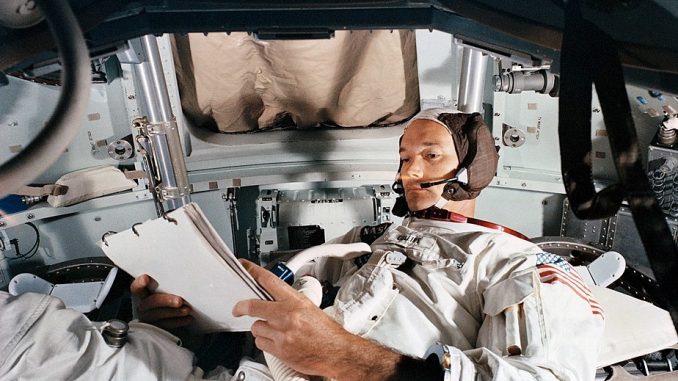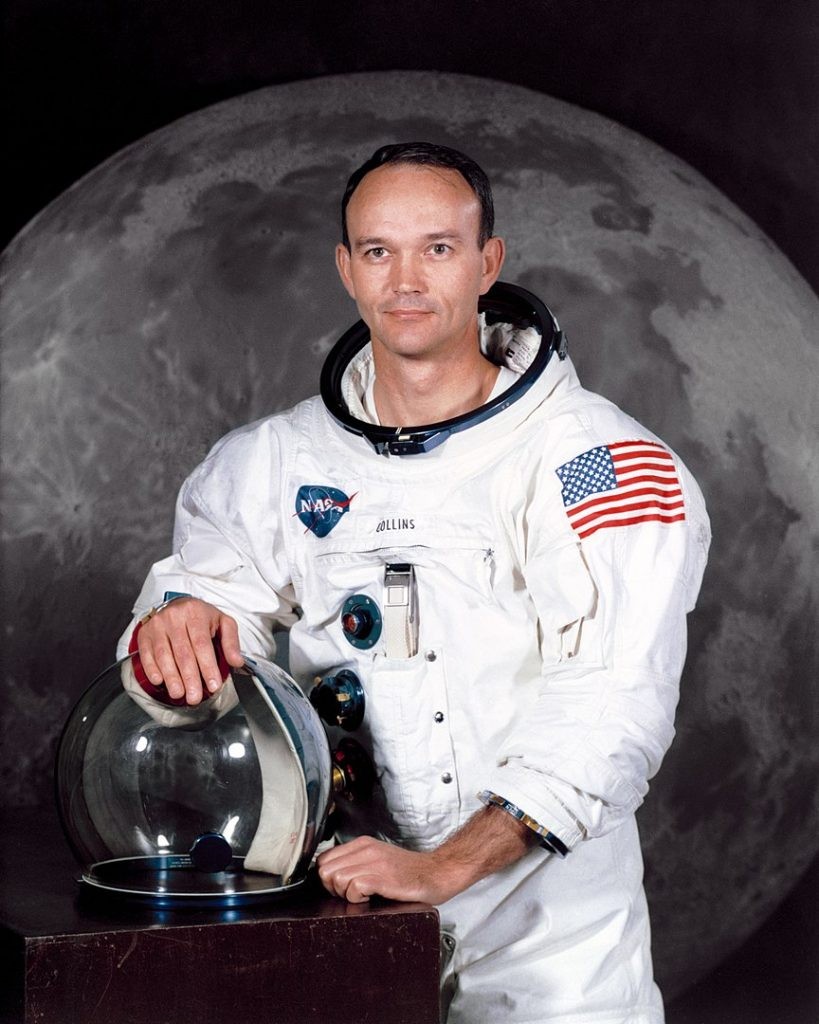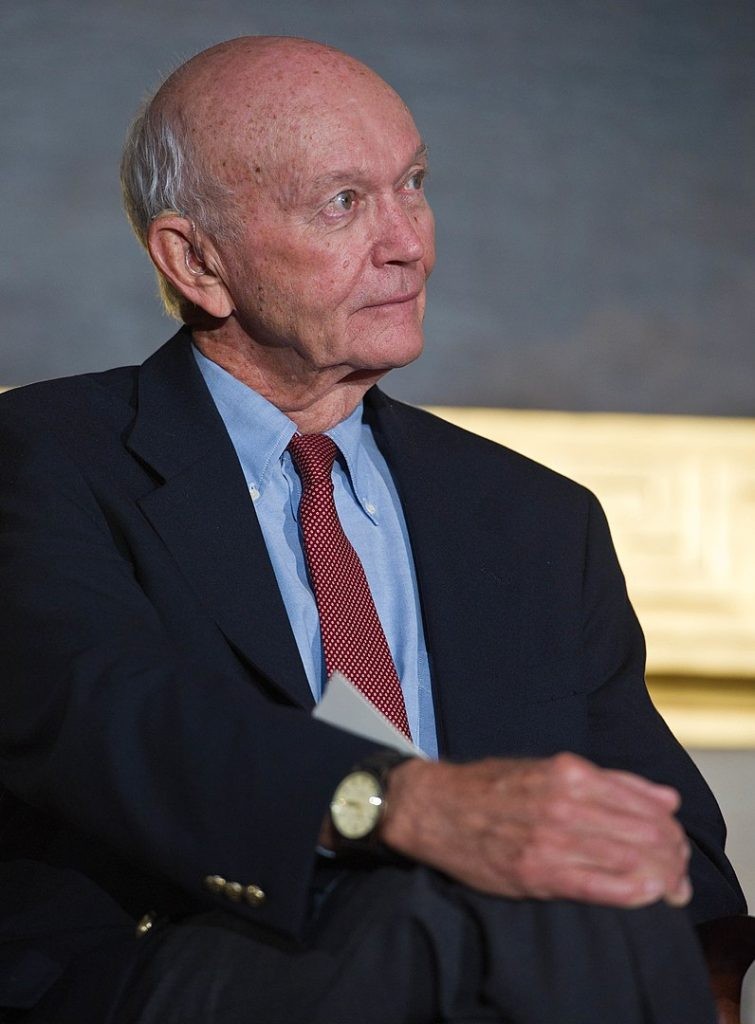
The San Diego Air & Space Museum is remembering Michael Collins, the Command Module Pilot for the historic Apollo 11 moon landing in 1969 and a member of the prestigious International Air & Space Hall of Fame. Collins passed away on April 28, 2021. He was 90.
Since 1963, the International Air & Space Hall of Fame has honored the world’s most significant pilots, crew members, visionaries, inventors, aerospace engineers, business leaders, preservationists, designers and space explorers. Collins entered the International Air & Space Hall of Fame at the San Diego Air & Space Museum in 1971.

“Michael Collins’ performance, perfection and skill on Gemini 10 and Apollo 11 were vitally important to the success of both missions,” said Jim Kidrick, President & CEO of the San Diego Air & Space Museum. “His incredibly successful career after leaving NASA as assistant Secretary of State, and later Director of the National Air & Space Museum, are a credit to his accomplishments as a former experimental test pilot and NASA astronaut. The San Diego Air & Space Museum mourns his loss while remembering him fondly for his compassion and incredible achievements.”
Collins graduated from the United States Military Academy in 1952, choosing to enter the Air Force after graduation. An experimental test pilot at the Air Force Flight Test Center, Edwards AFB, California, he tested performance, stability, and control characteristics of jet fighters, logging over 4,200 hours flying time.
He was selected as an astronaut by NASA in October 1963. His first crew assignment was as back-up pilot on the Gemini VII mission. As a pilot on the record setting three-day Gemini X mission, launched July 18, 1966, he accomplished a successful rendezvous and docking with a separately launched Agena target vehicle. Using power from the Agena, he maneuvered the Gemini craft into a new orbit and rendezvoused with a second passive satellite. Collins then made two extravehicular space walks, retrieving a micrometeorite detection experiment from the Agena.
As pilot on the epic Apollo 11 first lunar landing mission, Collins remained in lunar orbit while Neil Armstrong and Edwin Aldrin walked the moon’s surface. The perfection and skill with which he performed this mission, recovering the Eagle and returning the orbiter to earth, were vital to the success of the mission.
After leaving NASA, Col. Collins served as assistant Secretary of State for Public Affairs from June 1970 until April 1971. He then became director of the National Air and Space Museum in Washington, D.C., guiding the prestigious institution through the planning and construction of its fabulous new facilities.

The International Air & Space Hall of Fame is the most prestigious induction of its kind in the world and is composed of hundreds of air and space pioneers, engineers, inventors and innovators, along with adventurers, scientists and industry leaders. NASA Mercury, Gemini and Apollo astronauts and Russian cosmonauts are honored in the Hall, as well as famous legends such as the Wright Brothers, Charles Lindbergh, Neil Armstrong and Amelia Earhart. Notable inductees also include Buzz Aldrin, Igor Sikorsky, Wernher von Braun, Jack Northrop, Jackie Cochran, William Boeing, Sr., Reuben H. Fleet, Glenn Curtiss, Walter Zable Sr., Fran Bera, Wally Schirra, Bill Anders, Jim Lovell, T. Claude Ryan, Jimmy Doolittle, Bob Hoover, Ellen Ochoa, Peggy Whitson, Linden Blue, Patty Wagstaff, and many more. See the following link.
The San Diego Air & Space Museum is California’s official air and space museum and education center. The Museum is an affiliate of the Smithsonian Institution and it was the first aero-themed Museum to be accredited by the American Alliance of Museums. The Museum is located at 2001 Pan American Plaza, Balboa Park, San Diego, CA 92101. The Museum is open seven days a week from 10 a.m. to 4:30 p.m. except Thanksgiving and Christmas. For more information visit www.sandiegoairandspace.org


Be the first to comment
Graphic Design, Branding and Aviation Art